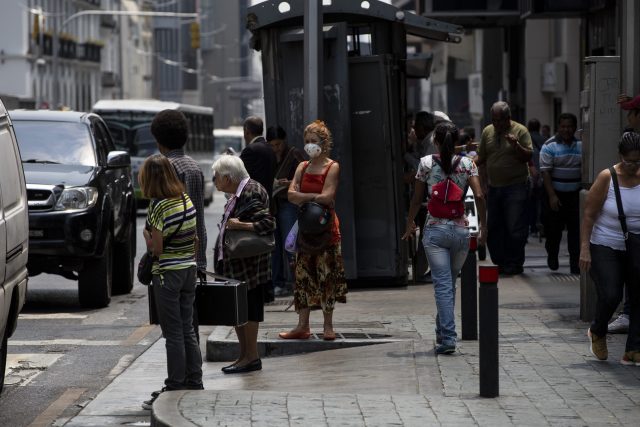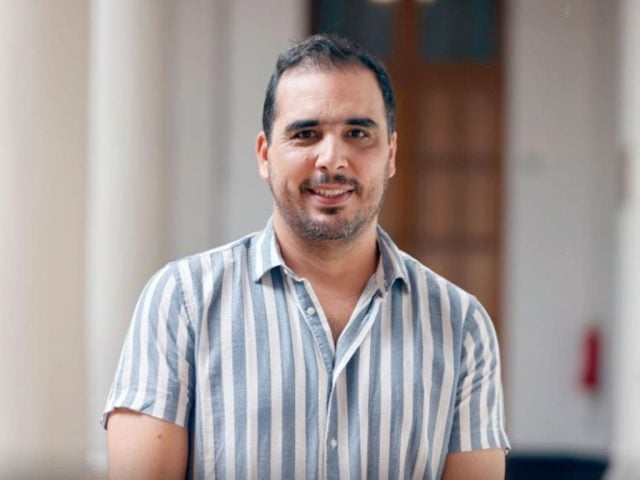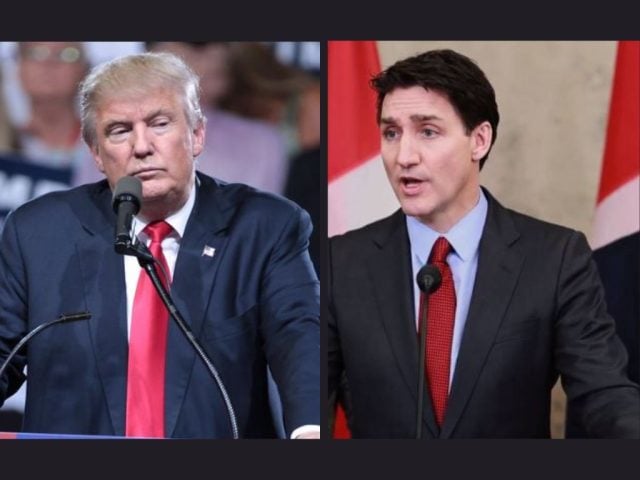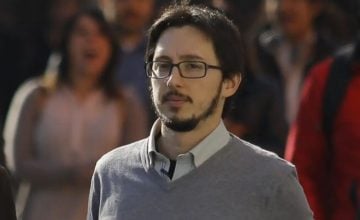The economic, political and social panorama in Venezuela seems to be heading towards a stabilization process, which could be concretized with the mega-elections on November 21.
The preamble to these elections is presented in a complex environment. On the one hand, there is the negative impact of the US unilateral coercive measures against Venezuela and the effort of some countries, such as Colombia, to ignore the legitimately constituted institutions; and on the other, the suspension of the dialogue between the government and the radical opposition, which sought to establish the bases for a political agreement.
However, since the beginning of the year, various analysts have argued that the worst moment of the Venezuelan economy has come to an end, and in this context, the Government has carried out a series of actions to guide the country towards a path of economic growth.
In conversation with RT, the Vice Minister of Anti-Blockade Policies of the Ministry of Economy and Finance of Venezuela, William Castillo Bollé, comments on the signs of this transition stage that the country is experiencing towards the desired stability.
Political peace and economic development in Venezuela
“Venezuela is experiencing extraordinary political peace at this time and a climate of work development and growth. New businesses are being opened with investors from various parts of the world, including from Europe and the US”, says Castillo.
The vice minister asserts that these resources are invested in the development and the recovery of industry and commerce, with an emphasis on boosting exports and diversifying the economy that is not dependent on oil rent.
In his opinion, the country is experiencing an «important moment of transition» that is in search of overcoming the blockade, the sanctions and the «criminal campaign» of the last six years, which «instrumentalized a Public Power to try to destroy democracy to the point of appointing an imaginary government with the aim of looting the resources of Venezuela».
The «imaginary government» referred to by Castillo is that of former opposition MP Juan Guaidó, who currently not only controls Venezuelan assets and companies abroad, but has also endorsed the confiscation of State assets in the US and Colombia, such as the cases of Citgo and Monómeros. However, the vice minister insists that Caracas’ priority is to continue defending its rights to these State’s property, while achieving «political normalization, peace and dialogue with all sectors».
The purpose of this multi-path strategy is to raise the productive apparatus, in parallel to political dialogue, an issue that has already begun to yield results. «Some investment banks, in Europe and the US, are talking about the possibility of an economic growth in Venezuela of between 5% and 6% by the end of the year», says Castillo.
In this regard, he emphasizes the progressive (although still incipient) recovery of the Venezuelan oil industry, which has allowed the «modest» increase in revenues.
The Electoral Issue
But beyond the timid economic signals, Castillo believes that the regional elections will represent a milestone in the country’s normalization process, as he considers that after its completion, «there cannot be a different result» other the beginning of a new governance climate, based on «respect for political diversity».
In addition, he estimates that with the formal beginning of the 30-day electoral campaign, a democratic competition will become even more evident «between 70,000 male and female candidates, 65,000 of them from the opposition parties and 5,000 from the revolutionary forces and the Great Patriotic Pole», that aspire to the governorships, mayors and regional and municipal legislative councils.
«Venezuela lives an electoral feast in peace and calm, because that is how we celebrate each election like a feast», says Castillo. However, he makes a clear differentiation of the way in which the Chavismo and the opposition will be measured at the polls.
In the case of the forces of the Chavismo, he maintains that its candidates are used to the electoral battle and are focused on advancing so as to reach the goal of stabilizing the country; while on the opposing side, they not only compete for political positions but also to legitimize themselves before the population.
«It is they», says the deputy minister, «who have to legitimize themselves after those appalling and historic failures that meant the attempts to overthrow the government in the last six years».
Venezuela’s dialogue on hold
The other key point is the dialogue that the opposition and the Government maintained in Mexico, with a view to a broad political agreement. However, in the last round, the negotiations were suspended by decision of the governmental delegation, in protest because of the «kidnapping» of diplomat Alex Saab.
In this regard, Castillo highlights that this suspension «has not generated changes or any type of internal responses», not even by the most extreme right wing of the opposition, which makes him consider that they have no desire to withdraw their participation in the regional elections.
What does happen – says the vice minister – is that the opposition has entered into an internal fight between themselves «for the control of the oppositions policies and Venezuela’s economic resources abroad», which has unleashed an intense cross accusations of corruption in the midst of the opposition.
The pitfalls to overcome
After the turmoil caused by the statements of the high representative of the European Union (EU) for Foreign Affairs and Security Policy, Josep Borrell, on the Venezuelan electoral process, which were considered as «interference» by Caracas, Castillo emphasizes, that although the incident was closed, there is still pending the need «to overcome the behaviors tied to a certain colonial mentality that is outdated».
The representative of the Venezuelan government emphasizes that the Electoral Observation Mission (EOM) of the European Union will be in Venezuela to «observe, accompany and even make recommendations and critical observations, if it has any», but that it will not, «in any way, validate , legitimize or certify the credibility of an electoral process». And in that sense, he points out: «That is so, for any sovereign State».
«What the EU and its electoral experts can take advantage of, is to see how a transparent, automatic process is carried out, with electronic voting, with more than 20 audits, so as to know why Venezuela is the country that makes the best elections in the world».
For this reason, Castillo asserts that both the accompaniment of the EOM, as well as that of the UN, among other international observers, will serve to attest to the electoral process that Venezuela will experience and the good climate in the country.











